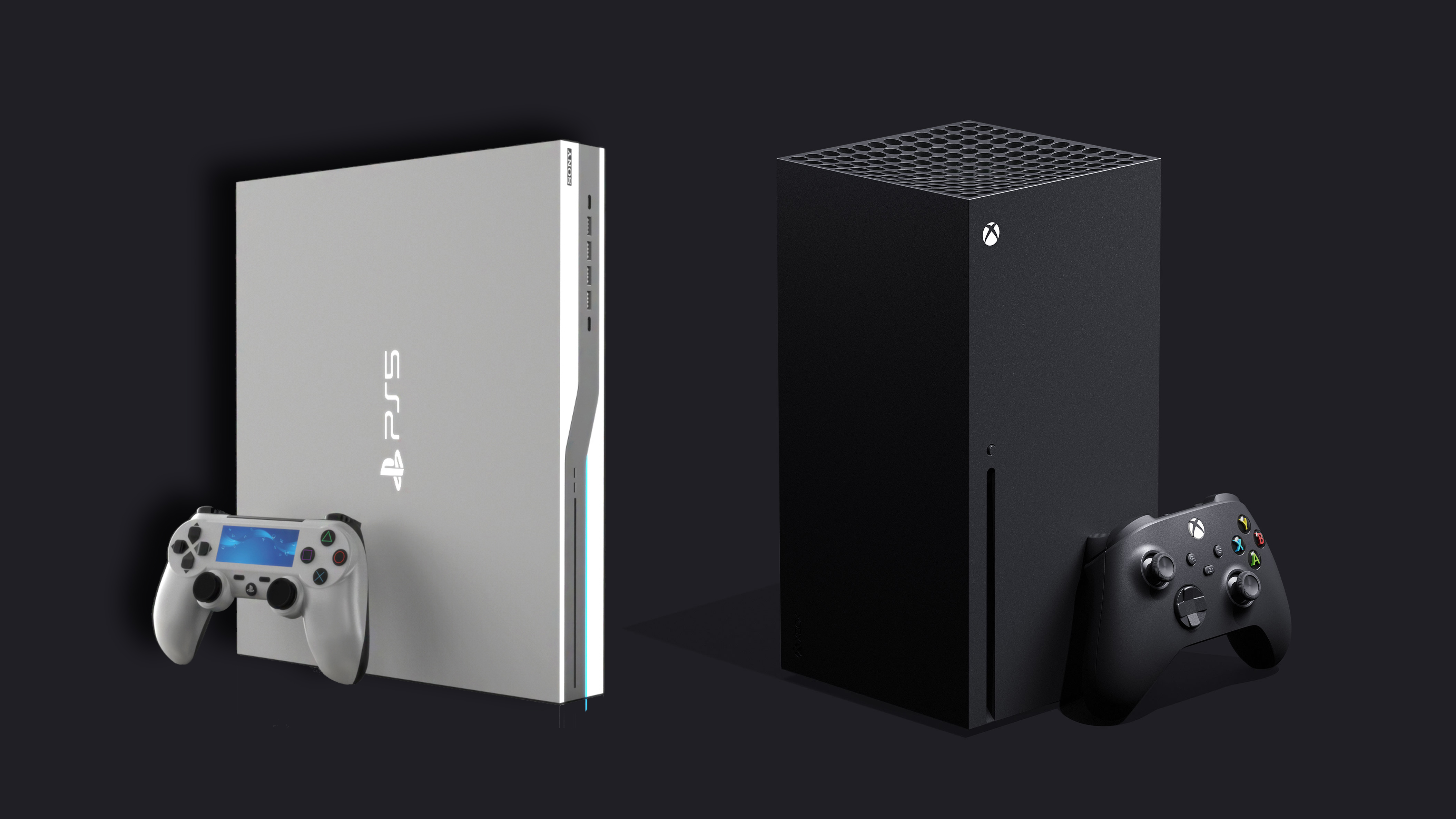Is the Xbox Series X vs PS5 war already won? This SHOCKING stat says YES
Great reading for Sony PlayStation fans looking forward to PS5, and worrying news for Xbox users waiting on Xbox Series X


Get all the latest news, reviews, deals and buying guides on gorgeous tech, home and active products from the T3 experts
You are now subscribed
Your newsletter sign-up was successful
The incoming next-gen console war between the Sony PS5 and Microsoft Xbox Series X promises to be one of the biggest ever, with Microsoft confirming its system's powerhouse specs and Sony doing its best to remain tight lipped about its machine in the face of some very exciting rumours about its top performance and features.
And, naturally, with two top hardware-packing new flagship consoles slated for release head-to-head this winter holiday season, gamers have already begun to speculate as to which system is going to come out on top. Will there be more PlayStation 5's tucked snugly under gamers' Christmas trees come December 25, 2020, with a selection of hot new PS5 games to play? Or, actually, will the Xbox Series X be the console that the whole family gets stuck into after eating too much turkey?
Microsoft's Phil Spencer has said since day one that the Xbox Series X will "set the benchmark for console gaming", and after the North American console maker confirmed its flagship system will pack 12 teraflops of GPU performance, which is twice that of the Xbox One X, it's easy to see that claim coming to pass.
Sony has so far not confirmed how powerful its PS5 flagship console will be, however rumours indicate that it will be in the same ball park. Importantly, though it is looking like hardware is not going to be deciding factor in who wins the next-gen console war anyway.
That's because, as reported by respected video game website Push Square, not only has the maker of the world's most powerful console been outsold by a factor of over 2-to-1 in the current console generation, with Sony selling 109 million PlayStation 4 consoles to date compared with Microsoft's estimated 41 million Xbox One units sold (estimated as Microsoft stopped publishing sales figures back in 2015: this is widely accepted to be as Microsoft did not like the sales data it was seeing), but that the already huge sales gap has actually been widening over the past couple of years even more.
As Push Square note, the last time estimated sales data was available for the Xbox One back in 2018, courtesy of EA's reports, the Xbox One family of systems had sold 50 million units less than the Sony PS4 family of consoles, which was approaching 80 million. Now, under two years later, Sony has gone on to increase that sales gap to 68 million units — not only is Sony dominating Microsoft, but it is increasing its dominance. For the top brass in Xbox HQ this will be truly sobering news.
Which, of course, raises the issue of gaming ecosystem install base for Microsoft going into the next generation. With approaching three times the install base, Sony is in a very, very strong position — if the maker simply transitions every PlayStation 4 owner into becoming a PlayStation 5 owner (which is something the Japanese maker has already recognised as its primary focus) then it will immediately get a massive head start in the next-gen console war.
Get all the latest news, reviews, deals and buying guides on gorgeous tech, home and active products from the T3 experts
Microsoft's Xbox Series X (as well as rumoured additional Xbox Series consoles) will have to make up 68 million consoles sales (either from new console adopters or poaching PlayStation gamers) just to break even with the PlayStation 5, let alone take any sort of lead. And that is accepting that each of the 41 million Xbox One owners upgrade to a next-gen Xbox console.
And, while of course gamers switch allegiances all the time between console generations, drawn to the new console that delivers the best gaming experiences, the fact that both consoles' gaming ecosystems are now so mature (many gamers will have been tied into their accounts for years and will be used to gaming with their same-console owning friends) and that both next-gen systems are putting so much emphasis on backwards compatibility, means it is hard to see too much migration from one to the other.
Now, the one thing that the history of video game console releases tells us, is that the dominating power does not always go on to maintain its position in the following generation. You just have to look at the PlayStation 2's fall from a position of total market dominance to having the PlayStation 3 absolutely creamed by the Xbox 360, as a good example of that. Which is a pattern that was then reversed the following generation, with Microsoft seeing its Xbox 360-successor, the Xbox One, obliterated in terms of sales by the PS4.
Could another swing take place? Absolutely, but considering how Sony has been burned by neglecting what gamers actually want once before (games guys, it is about the games!) and, as aforementioned, has now put great stock in making the transition to PS5 as easy as possible for PS4 gamers in terms of console pricing, wide selection of PS5 games and quality next-gen hardware, it's hard to see that happening. And certainly not to the extent that would see the Xbox Series X crowned the next-gen console king.
Of course, there are also other factors to consider, such as the arrival of cloud-based gaming services such as Google Stadia, but they would impact both Sony PlayStation and Microsoft Xbox install bases, rather than just one. There is also the all-important what games can gamers actually play on the systems aspect to consider — gamers want to play great games first and foremost, so if one system has loads of amazing exclusives, that will affect sales.
This sales statistic considered, though, it seems that the next-gen console war could very well already be won. It'll be interesting to see just how console generation plays out, which many commentators are saying could be the last traditional one gamers see. Does Microsoft have a Xbox Series X trick up its sleeve? Or, 20 years after the PlayStation 2, is Sony about to set new records for consoles sales and competitor dominance?

Rob has been writing about computing, gaming, mobile, home entertainment technology, toys (specifically Lego and board games), smart home and more for over 15 years. As the editor of PC Gamer, and former Deputy Editor for T3.com, you can find Rob's work in magazines, bookazines and online, as well as on podcasts and videos, too. Outside of his work Rob is passionate about motorbikes, skiing/snowboarding and team sports, with football and cricket his two favourites.

